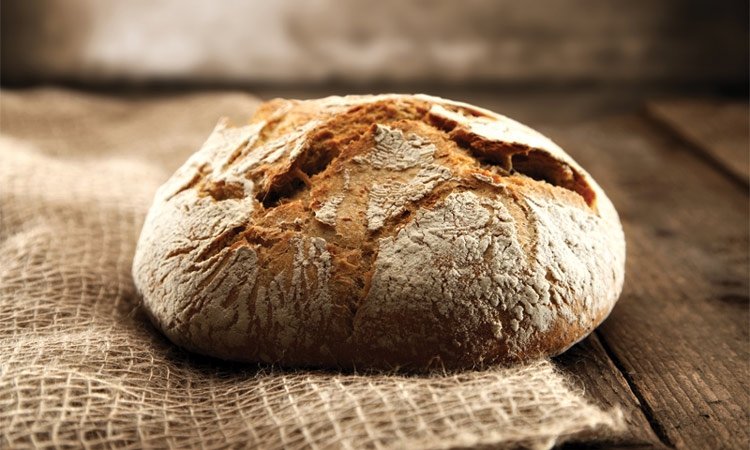“I am the bread of life” 1 is one of the seven “I Am” statements of Jesus. …
Bread is considered a staple food—i.e., a basic dietary item. … Bread is such a basic food item that it becomes synonymous for food in general. We even use the phrase “breaking bread together” to indicate the sharing of a meal with someone. Bread also plays an integral part of the Jewish Passover meal. The Jews were to eat unleavened bread during the Passover feast and then for seven days following as a celebration of the exodus from Egypt. Finally, when the Jews were wandering in the desert for 40 years, God rained down “bread from heaven” to sustain the nation. 2
All of this plays into the scene being described in John 6. Jesus was trying to get away from the crowds to no avail. He had crossed the Sea of Galilee, and the crowd followed Him. After some time, Jesus inquires of Philip how they’re going to feed the crowd. Philip’s answer displays his “little faith” when he says they don’t have enough money to give each of them the smallest morsel of food. Finally, Andrew brings to Jesus a small boy who had five small loaves of bread and two fish. With that small amount, Jesus miraculously feeds the throng with lots of food to spare.
Afterward, Jesus and His disciples cross back to the other side of Galilee. When the crowd sees that Jesus has left, they follow Him again. … He accuses the crowd of ignoring His miraculous signs and only following Him for the “free meal.” Jesus tells them in John 6:27, 3 “Do not work for the food that perishes, but for the food that endures to eternal life, which the Son of Man will give to you. For on him God the Father has set his seal.” In other words, they were so enthralled with the food, they were missing out on the fact that their Messiah had come. So the Jews ask Jesus for a sign that He was sent from God. … They tell Jesus that God gave them manna during the desert wandering. Jesus responds by telling them that they need to ask for the true bread from heaven that gives life. When they ask Jesus for this bread, Jesus startles them by saying, “I am the bread of life; whoever comes to me shall not hunger, and whoever believes in me shall never thirst.” 4
This is a phenomenal statement! First, by equating Himself with bread, Jesus is saying He is essential for life. Second, the life Jesus is referring to is not physical life but eternal life. … He is contrasting what He brings as their Messiah with the bread He miraculously created the day before. That was physical bread that perishes. He is spiritual bread that brings eternal life. …
The key is found in another statement Jesus made, back during His Sermon on the Mount. In Matthew 5:6, 3 Jesus says, “Blessed are those who hunger and thirst for righteousness, for they shall be satisfied.” When Jesus says those who come to Him will never hunger and those who believe in Him will never thirst, He is saying He will satisfy our hunger and thirst to be made righteous in the sight of God. …
The Bible says God has placed [the desire for] eternity in our hearts. 5 The Bible also tells us that there is nothing we can do to earn our way to heaven because we’ve all sinned 6 and the only thing our sin earns us is death. 7 There is no one who is righteous in himself. 8 … When Christ died on the cross, He took the sins of mankind upon Himself and made atonement for them. When we place our faith in Him, our sins are imputed to Jesus and His righteousness is imputed to us. Jesus satisfies our hunger and thirst for righteousness. He is our Bread of Life.
This article is included courtesy of GotQuestions.org.
* * *
Christ compares the needs of men to hungering and thirsting. Now hungering is no sham. Those who have ever felt it know what a real need it indicates and what bitter pangs it brings. Thirst, also, is not a sentimental matter; it is a trial, indeed. What pain can be worse beneath the skies than thirst?
The heart, also, has its hunger, for almost unknown to itself it cries, “O that someone loved me and that I could love someone whose love would fill my nature to the brim.” Our hearts are gluttons for love. They hunt here and there, and are bitterly disappointed. But when they hear that Jesus Christ loved them before the world was, and died for them, their roving affections find rest. The love of Jesus casts out all hankering for other loves and fills the soul! He becomes the Bridegroom of our heart, our best Beloved, and we bid the more common things depart.—Charles Spurgeon (1834–1892), adapted
